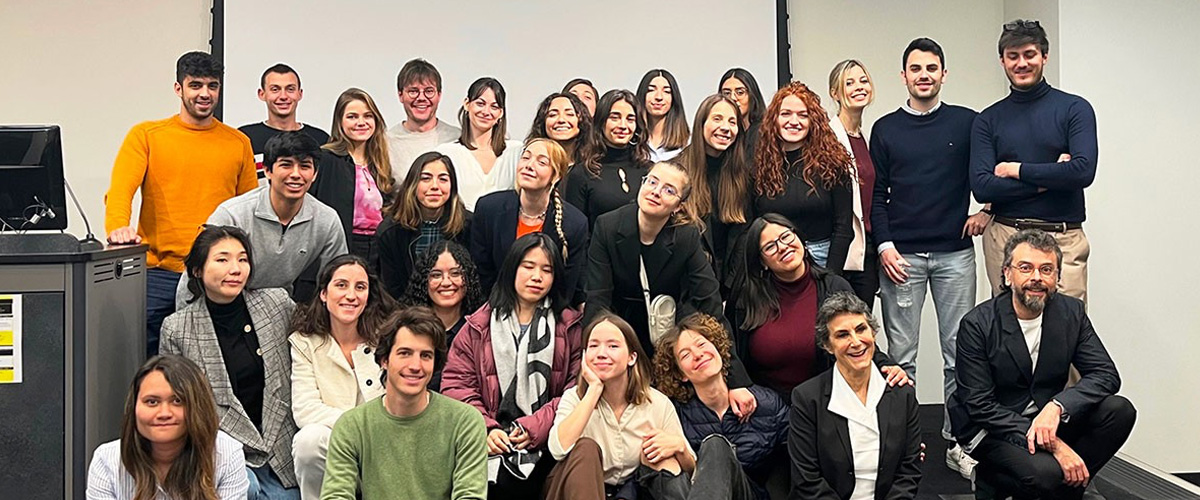
Students Participate in School of Architecture and Design’s Metabolism of a City Design Workshop
Pictured: Students from Politecnico Di Milano With Giovanni Santamaria, kneeling at far right, and Antonella Contin, seated next to Santamaria, visited New York Tech to participate in the School Of Architecture and Design’s Annual Spring Design Workshop Series Metabolism of a city.
Students from Politecnico di Milano participated in the School of Architecture and Design’s annual spring design workshop series Metabolism of a City along with students in the master’s in architecture, urban design and bachelor’s in architecture programs. The series is part of an international exchange agreement between the School of Architecture and Design and Politecnico di Milano, which was established in 2006. The workshop also features topical lectures and an international symposium with academicians, policymakers, community representatives, public administrators, and private organizations. This year, the workshop and symposium welcomed Rafael Forero, policy, governance, and metropolitan expert at the UN-Habitat and of the Heritopolis Society.
“It is exciting to see the evolution over the years of the partnership between Politecnico di Milano and our School of Architecture and Design at New York Tech,” says Dean Maria Perbellini, Assoc. AIA. “We hosted 30 architecture students from overseas on our New York City campus, sharing a unique exchange experience with School of Architecture and Design students and faculty. Working on design assignments and collaborative research on sustainable, inclusive, and regenerated urban contexts, students were exposed to local communities with global connotations and were inspired to reflect on the importance of being responsible professionals, engaged members of our society, and creative leaders in the world.”
This year’s theme, Metropolis as Heritage and Environmental Health, explored the topic of sustainable urban development and featured discussions on how the consideration of the metropolitan scale can renew our understanding of heritage; the role heritage can play in promoting sustainable development in modern metropolises to guarantee long-lasting solutions; and how the metropolitan dimension may allow for the rise of a deeper sense of caring and a passionate/compassionate engagement with the world to promote a more holistic and comprehensive approach to health.
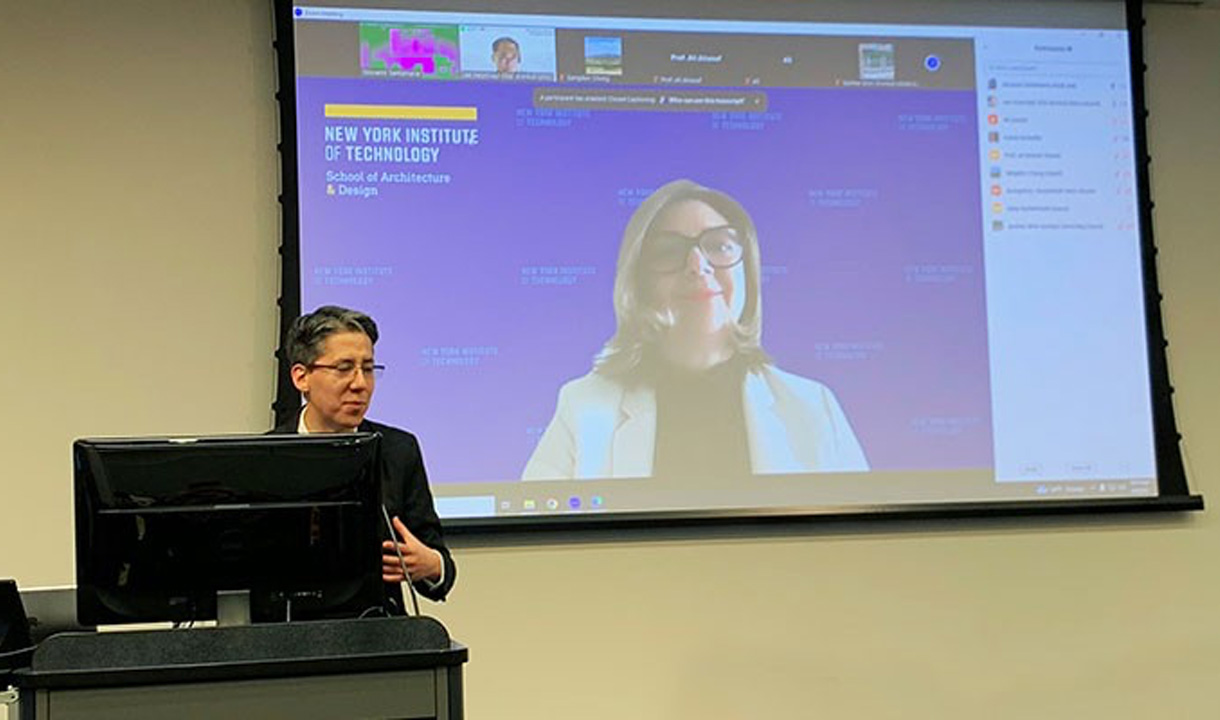
“Being invested in the issues that matter and gaining a profound understanding of the effects of these issues across scales—from interior spaces to urban ones—and on the quality of our daily life, is essential to respond to the challenges offered by the evolving methodologies in planning and designing our urbanized environments,” says Giovanni Santamaria, Ph.D., chair of architecture and co-organizer of the workshop with Antonella Contin, Ph.D., assistant professor at Politecnico di Milano.
From March 28 through April 7, the students participated in a design workshop focused on the transept between Flushing Meadows and Jamaica Bay in Queens, N.Y., which features areas of urban decay and vulnerability. Students worked in groups of three or four on the ecological, infrastructural, urban, social, and economic issues. They then proposed possible strategic plans on a large territorial scale, which address climate change, ecological damages, pollution, infrastructural imbalances, and fragile urban structures that also determine environmental and social injustice, addressed through sustainable design strategies that guarantee reclamation processes, protection from flooding, and a balanced accessibility to public services and transportation. Each team also identified specific and localized areas of action, proposing designs for landscape, urban, and architectural solutions to create resilient and integrated spaces and public programs for the future.
“The quantity and quality of the work produced by each team were impressive,” says Santamaria, noting that the students approached the project creatively and critically. “We [at the School of Architecture and Design] strongly believe in the value of applied research and advanced experimentation, which is made possible through these collaborative exchange projects across institutions to foster a solid and dynamic learning experience for our students. This will enable them to be proactive agents of change.”
More News
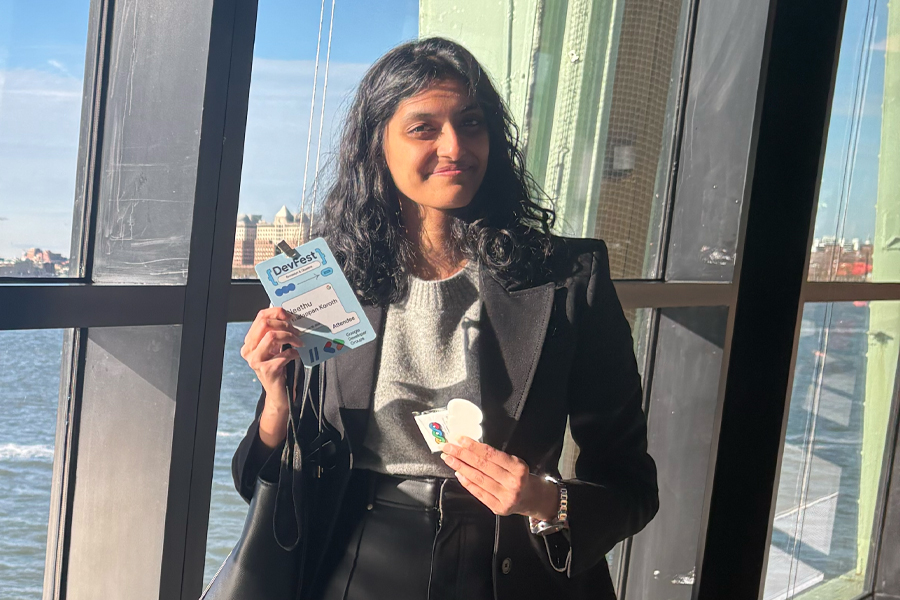
Her World Through Code
Graduate computer science student Neethu Thalappan Koroth thrives in her field of study while becoming involved in several on-campus projects to deepen her expertise.
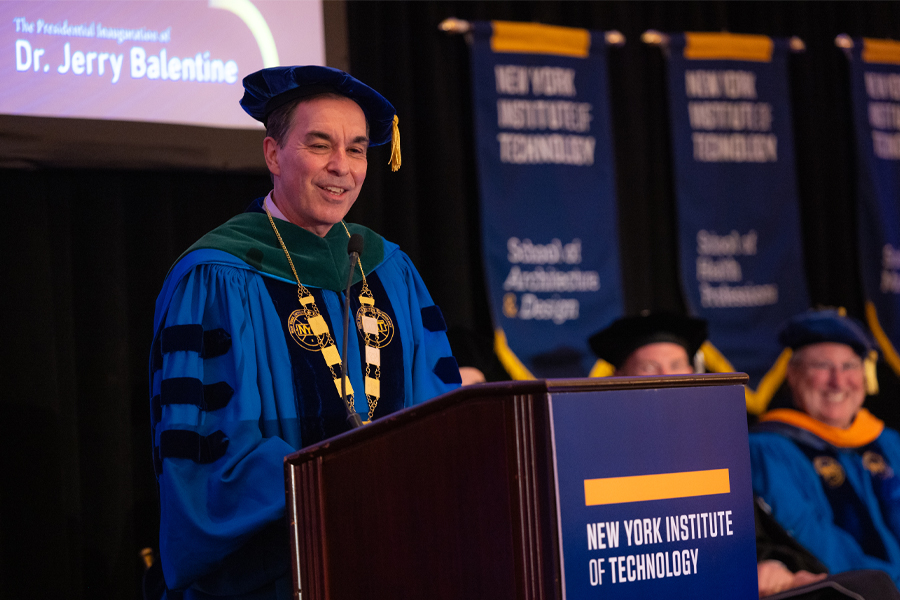
The Installation of President Jerry Balentine, D.O.
On October 16, surrounded by respected colleagues, family, and friends, Jerry Balentine, D.O., was installed as the fifth president of New York Institute of Technology.

Bridging Business Knowledge With AI
The School of Management has embraced and integrated AI into its courses, focusing on teaching students how to leverage technology to help achieve their goals in the classroom and beyond.
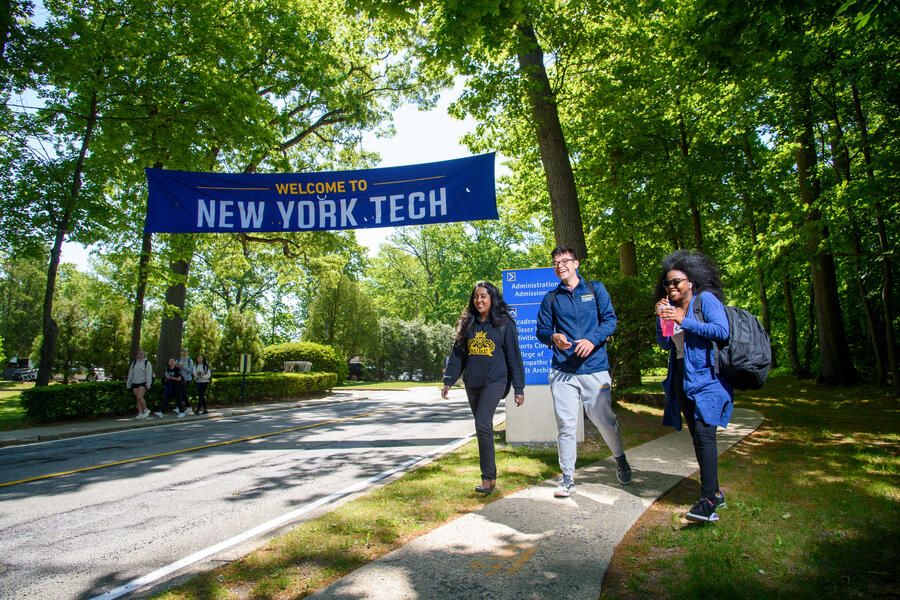
Innovation and Social Mobility Recognized in U.S. News Best Colleges Rankings
New York Tech was recognized for both its innovation and social mobility among universities in the North in the U.S. News & World Report 2026 Best Colleges rankings.

New York Tech Celebrates National Hispanic Heritage Month 2025
The university will host a series of events to celebrate Hispanic Heritage Month.
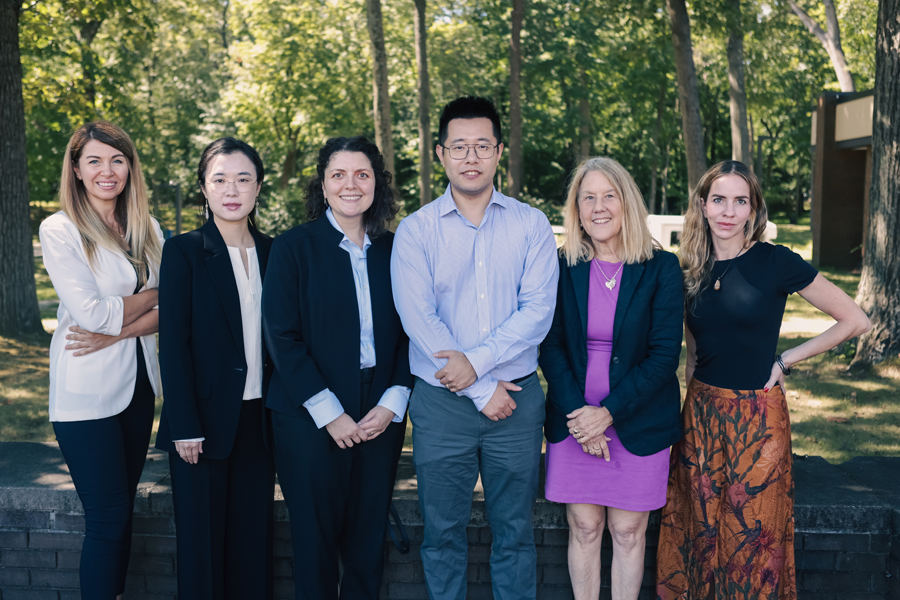
New Academic Year Welcomes New Faculty
New York Tech welcomes new and recently hired faculty to the university for the new academic year.